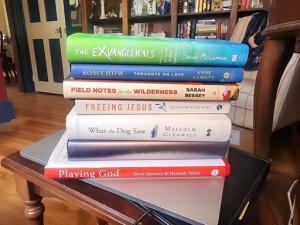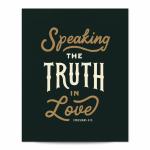A few days ago Jeanne said “I’ve got something you have to go to.” I’ve learned over 35+ years that her ideas about what I should do are, more often than not, on point–this was one of those times. Not too many spouses would realize that “Theology Beer Camp” would be a perfect fit for their significant other–it’s a little niche–but within 24 hours I had arranged for my son and I to attend (he lives just a few hours from Denver where beer camp will take place), conference tickets were procured, and my airline ticket was purchased.
 One of the headline speakers at Theology Beer Camp will be Diana Butler Bass, whose book Freeing Jesus is next on my list of half-finished books to complete before the new semester starts in four weeks. She’s has been a rock star in progressive Christian circles for some time. As academics will go, I did a bit of beer camp/Diana Butler Bass research and discovered that she has been a regular there for the few years of the camp’s existence.
One of the headline speakers at Theology Beer Camp will be Diana Butler Bass, whose book Freeing Jesus is next on my list of half-finished books to complete before the new semester starts in four weeks. She’s has been a rock star in progressive Christian circles for some time. As academics will go, I did a bit of beer camp/Diana Butler Bass research and discovered that she has been a regular there for the few years of the camp’s existence.
On her blog a couple of years ago, Butler Bass describes a beer camp session where the speaker asked the hundreds of people assembled to identify by raised hands their religious affiliation. Presbyterian? Episcopal? UCC? Methodist? Lutheran? Only a few hands went up for each of these denominations.
“Who are you people?” the speaker asked with good-natured frustration. “Exvangelicals!” someone shouted from the audience. What’s an exvangelical? Butler Bass goes on to describe them in her blog post.
Various journeys had brought them together, but most of those stories included religious trauma, familial rejection, and the loss of friends, jobs, and community. Almost every person I talked to had experienced getting kicked out of something (usually an evangelical college, a para-church ministry, or a conservative denomination) and few family relationships were healthy or intact. People shared about being pushed out for coming out, for being a woman with a call to preach, for asking unacceptable theological questions, and for refusing to vote for Donald Trump. There were heartbreaking testimonies from the various platforms and in private conversations. Beer flowed, but so did tears.
Exvangelicals are refugees from the evangelical Christian church, the very world that I grew up in. Although the story of my evolution away from that brand of Christianity is not as dramatic or traumatic as those described in Butler Bass’s blog post, I still carry some of the scars (as well as some positive features). I will feel right at home at beer camp—I am also an exvangelical.
With a synchronicity that I long ago stopped calling “coincidence,” I was in the middle of reading Sarah McCammon’s excellent memoir The Exvangelicals the day that Jeanne told me about theology beer camp—I finished the book a couple of days ago. Sarah McCammon is National Political Correspondent for NPR and is co-host of the NPR Politics Podcast—as a regular NPR listener, I hear her voice frequently. Her memoir is beautifully written, strikingly honest, and is both a compelling story of her own religious/spiritual journey away from evangelical Christianity and a well-researched investigation into exvangelicals such as one would expect from an excellent journalist. I highly recommend it.
The penultimate chapter of The Exvangelicals is “Wrestling Against Flesh and Blood,” in which McCammon writes about the extreme vitriol and hatred that exvangelicals regularly receive from those in the evangelical church which they have left. As an example she notes some of the responses to the premature, tragic death of Rachel Held Evans a few years ago. Held Evans was a pioneer of what would become a tsunami of people leaving the evangelical church before she died in 2019. After her death social media was filled with prominent evangelicals reveling in their belief that she had now met her maker and would spend the rest of eternity in hell.
I have written frequently in this blog about how Christians can turn from apparent love to judgment and nastiness on a dime under certain circumstances. Barbara Brown Taylor once said in an interview that “True believers are among the meanest people I’ve ever met. I cannot think of anybody of another faith who has wounded me like Christians. Judged, condemned to hell, cast out of the body of the faithful — look me up online.”In my own much smaller sphere of influence, I know exactly what McCammon and Taylor are talking about. I have been called a heretic and condemned to hell for infractions ranging from referring to the Holy Spirit as “She” to suggesting that the Bible is neither inerrant nor infallible. Ninety-five percent of the time I easily let such vitriol roll off my back, but once in a while the philosopher in me wants to engage with such critics. Big mistake.
I realize as I write this the extent to which I have lost patience with those members of my former tribe who believe that they have divine permission to hate people who believe differently than they do, people who for their own sanity and survival have left the camp. In response to a person who challenged her to justify her support for exvangelicals and their choices, Diana Butler Bass writes the following in her blog:
I wish you’d heard the pain from all the women who weren’t allowed to preach, only able to find their voices once they left their churches. I wish you’d engaged the conversations about the bad theology that led to domestic violence, and how escape was the only option. I wish you’d been there as people told stories of how their congregations gave themselves over to Qanon, white Christian nationalism, and MAGA. I wish you’d heard how they resisted being recruited into a political and social movement based upon twisting the Bible where hatred is disguised as “love.” I wish you’d been there to see the persistent courage of those who sensed that the God of the Cosmos was not the God of evangelicalism—and they chased down that pearl of great price no matter what it cost and what they lost in the process.
I’m really going to enjoy beer camp.













